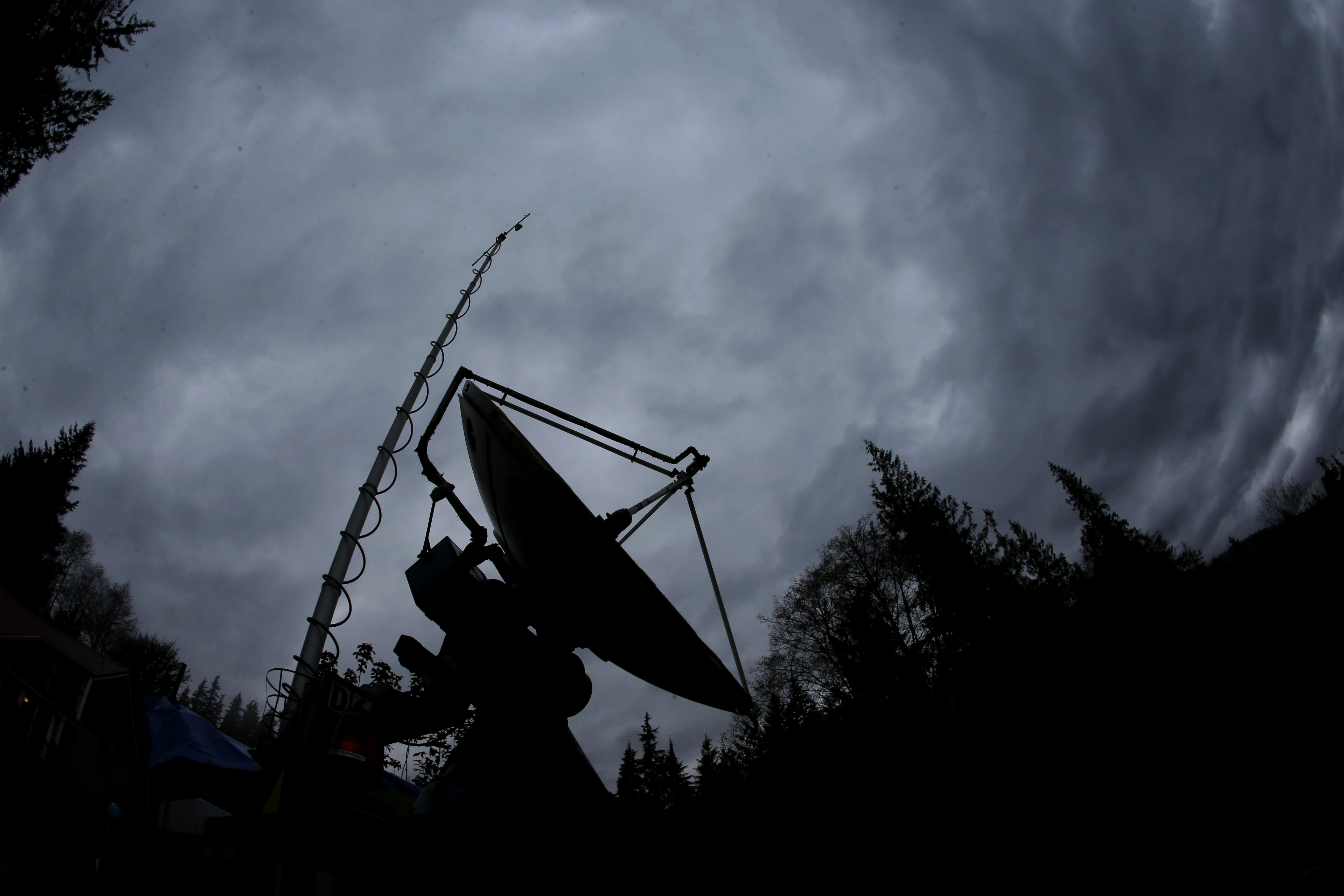The National Reconnaissance Office is positioning itself as a “service provider” of commercial satellite capabilities, while an ongoing Space Force study could help determine whether the NRO should expand its commercial collaboration even further.
NRO Director Christopher Scolese says using commercial satellite services gives his agency the chance to focus on only developing the most critical spy satellite capabilities where no solution exists in the marketplace.
The NRO and the National Geospatial Intelligence Agency have sought to better take advantage of a fast-growing commercial space sector in recent years. For the NRO, it’s a shift away from mostly relying on major government contractors to develop and build capable but expensive government-owned satellites.
“We are looking for more commercial services, where we kind of have a motto of ‘Buy what we can, build what we must,’” Scolese said during an Aug. 4 event hosted by the Mitchell Institute. “What it comes down to is the commercial market has really grown and, and we’re seeing a lot of capability out there that the commercial companies are providing, that gives us an opportunity to acquire data that’s needed by the [intelligence] community at a lower cost.”
In May, the NRO awarded three commercial imagery contracts to Blacksky, Maxar and Planet, respectively, representing a “historic expansion of the NRO’s acquisition of commercial imagery.” Maxar had previously been the sole provider of such capabilities for nearly a decade. The agency did not provide exact figures but said the contracts are “valued at billions of dollars over the next decade.”
Prior to those major deals, NRO had awarded study contracts to the three companies in 2019 to help determine the path forward for its electro-optical imaging program. Scolese said the NRO wants to engage commercial companies early, before it makes decisions about major contracts.
“About yearly, we’re going to we’re going to go off and ask for commercial companies to come in with their ideas, so that we can engage early, prior to having to award a contract, so they can understand what the government’s needs are, and we can understand what their capabilities are,” he said.
In January, the NRO awarded five contracts to satellite radar companies under a Broad Agency Announcement arrangement the agency has established to work closely with commercial firms.
The agency is now seeking information from companies that operate radio-frequency sensing satellites to better understand their capabilities. Scolese said the agency will formally announce the next area of focus for the commercial BAA in the fall.
The NRO’s expanding work with commercial firms comes as other agencies look at obtaining their own overhead imagery from commercial companies. But Scolese said “the mechanism is there” for agencies to get commercial data from the NRO.
“The NRO will serve as the service provider for that,” he said. “And further, we’re putting it into our data streams, so that any organization can pull off that data through their standard connection to ISR data.”
Scolese said the Space Force is conducting a study of overhead intelligence, surveillance and reconnaissance that will help determine whether the NRO needs to expand its offerings.
“We’ll adjust as appropriate as we get the results from that study,” he said.
NRO IG nominee considers commercial challenges
Terrence Edwards, the nominee to serve as inspector general for the NRO, has also been considering the agency’s challenges in working with commercial firms. During a Tuesday hearing before the Senate Select Committee on Intelligence, Edwards was asked about the IG’s role in overseeing the NRO’s acquisition of government-developed and commercial capabilities.
“As the NRO moves in a new direction and expands, buying additional capabilities, I think it’s critical for the IG’s office to fully understand what it’s doing and reviews those programs to ensure they’re effective and efficient and assist where they can in helping to determine whether it makes sense to buy more commercial versus building organic,” Edwards said.
Edwards is currently chief of staff to Principal Deputy Director of National Intelligence Stacey Dixon. He has served as an attorney for multiple defense and intelligence components during his career, including a stint as general counsel for management in the Office of the Director of National Intelligence.
In his written responses to pre-hearing questions, Edwards suggested one challenge NRO may face in grappling with an explosion of commercial space capabilities is “whether its acquisition, fiscal and security policies and procedures provide sufficient controls to manage these often new and expanding commercial relationships.”
“I expect it is particularly difficult where the awards are for large-scale, unclassified contracts in which the arrangement involves open and non-traditional companies with uncleared personnel and no access to secure information systems,” he wrote.
“Additionally, I offer that another challenge is having the right personnel with the right skill sets, which is key to managing the risk associated with developing new relationships and adopting new capabilities,” Edwards continued. “If confirmed, I will determine whether the NRO has assessed and continues to assess whether it has the right talent to maneuver effectively in this new area.”
Copyright
© 2024 Federal News Network. All rights reserved. This website is not intended for users located within the European Economic Area.

